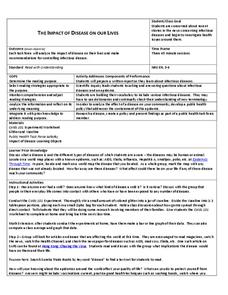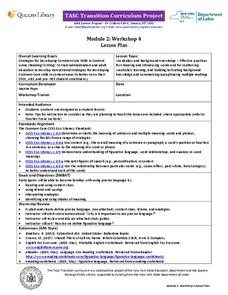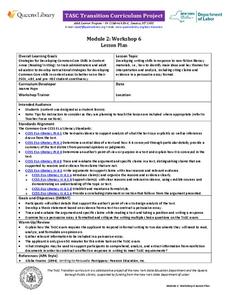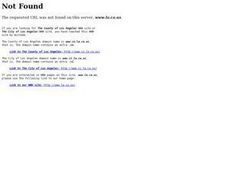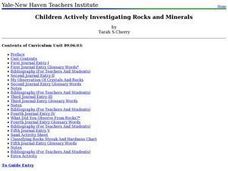National Math + Science Initative
Reading an Informational Text: "It All Started with Sputnik"
Sputnik was one of the greatest scientific advancements of the 1950s, and this reading lesson does it justice. Pupils start off with pre-reading questions and a video. They then read an excerpt from an article, which is accompanied by...
Kenan Fellows
Reading Airline Maintenance Graphs
Airline mechanics must be precise, or the consequences could be deadly. Their target ranges alter with changes in temperature and pressure. When preparing an airplane for flight, you must read a maintenance graph. The second lesson of...
EngageNY
TASC Transition Curriculum: Workshop 15
What do a cheetah, Audi commercial, and air have in common? They're all topics of an engaging inquiry-based, hands-on workshop for educators about background knowledge, reading strategies, the CER model, and argumentative writing. The...
Curated OER
Night of the Twister
Students use reading strategies for Night of the Twister. In this reading strategies lesson, students name five major catastrophes and books about each. Students complete a vocabulary section, make inferences and predictions, read the...
Lee & Low Books
First Come the Zebra Teacher’s Guide
Accompany a reading of First Come the Zebra written and illustrated by Lynne Barasch with a teacher's guide equipped with before reading, vocabulary, and after reading activities. Additional social studies, science, music, art, math, and...
Curated OER
The O Zone-Code Read Alert
What are the effects of an air quality alert? Expert groups receive one component of air quality information resources to study. Pupils then jigsaw into new groups and share their knowledge. Finally, they draft a statement of what they...
Washington Office of Superintendent of Public Instruction
Using Our Senses to Observe
Look around and explore. Little ones use their five senses with some day-to-day activities designed to guide observation and apply STEM strategies. Young scientists learn through comparing/contrasting and observing with magnifiers as...
Environmental Protection Agency (EPA)
How Much Water Do You Use?
Incorporate reading strategies, math, research, and the scientific method into one lesson about water conservation. After reading a story about a landlady trying to determine how many people are living in an apartment, learners develop a...
Curated OER
The Impact of Disease on Our Lives
Young scholars write a report about infectious diseases where they demonstrate their understanding of new terminology. For this writing lesson, students analyze the effect of disease in their lives and and make scientific inquiry about...
Curated OER
Reading Miss Lady Bird's Wildflowers
Students discover the impact "Lady Bird" Johnson had on America by reading a short biography. In this historical persons lesson, students read a multi page biography of the former first lady and write a summary of her life's work....
WE Charity
High School–Module 2: Circular Economy and Nature
Everyone's heard the popular slogan reduce, reuse, recycle, but there may be a better way to talk about sustainability. Using the second lesson from the five-part WE Are Innovators—High School Modules series, learners explore issues...
New York State Education Department
TASC Transition Curriculum: Workshop 4
Why is it important to use precise language? Participants explore this question in the fourth activity in a series of 15 on effective instruction. Perfect for all content areas, the activity promotes appropriate language choice through...
Baylor College
Neurotransmitters Contain Chemicals
Human body systems students play a card game, "Locks & Keys" in order to learn that neurotransmitters carry a message from one neuron to another by fitting into a receptor site on the receiving nerve cell. While this activity can...
Curated OER
Graphic Organizers for Good Science Reading and Writing
Learners use reading and writing strategies to explain informational text in science. They create and use different types of graphic organizers to understand, interpret, and analyze informational text.
Curated OER
Critical Thinking Strategies
Students explore critical thinking strategies. For this critical thinking lesson, students evaluate multiple choice answers. Students note similarities between incorrect answers and discover how to compare and contrast incorrect and...
Institute of Electrical and Electronics Engineers
Can You Copperplate?
Introduce emerging engineers to the process of metal plating. This resource provides background reading on chemical engineering, plating, and corrosion. It concludes with a copper plating activity. The standards alignment list includes...
American Forest Foundation
Who Speaks for the Trees?
Help young conservationists appreciate the important role that trees play in ecosystems around the world with this collection of six engaging activities. From a shared reading and class discussion of Dr. Seuss' The Lorax, to in an depth...
EngageNY
TASC Transition Curriculum: Workshop 6
Is a college education necessary for success in today's world? The class investigates the question, along with others at the end of the sixth workshop in a 15-part series. The lesson has four parts with multiple activities and...
Serendip
Golden Rice – Evaluating the Pros and Cons
More than half the world's population eats rice as a daily staple ... imagine if that rice could prevent illness. Scientists genetically engineered rice to include vitamin A for just that purpose. However, room for debate still exists....
Curated OER
Improving Deductive Reasoning Skills
Students develop a strategy list for problem solving by working with different types of problems. They recognize problems that may be solved using deductive reasoning and solve deductive reasoning problems.
Curated OER
Read, Write and Talk
Fourth graders explore electricity by reading a story in their class. In this research technique lesson, 4th graders read a Magic School Bus book together and decide which elements of the story are the most important when asked about...
Curated OER
Advanced Reading Comprehension Skills and Earth Literacy
Students brainstorm a list of behaviors they exhibit towards different life forms on Earth. In groups, they categorize organisms into living and non-living components. To end the lesson, they identify ethical elements in their own human...
Curated OER
Children Actively Investigating Rocks and Minerals
Students follow directions to set up their own record keeping journal. As a class, they are introduced to the characteristics of crystals and identify three types of crystals they see in their everyday lives. They examine materials they...
Curated OER
Be a "Peder-Reader" - A Discovery Activity
Young scholars investigate millipedes. In this math and physics lesson plan, students examine the millipede's physical structure and characteristics by observing its behavior in given activities. Pupils will hypothesize whether they...










